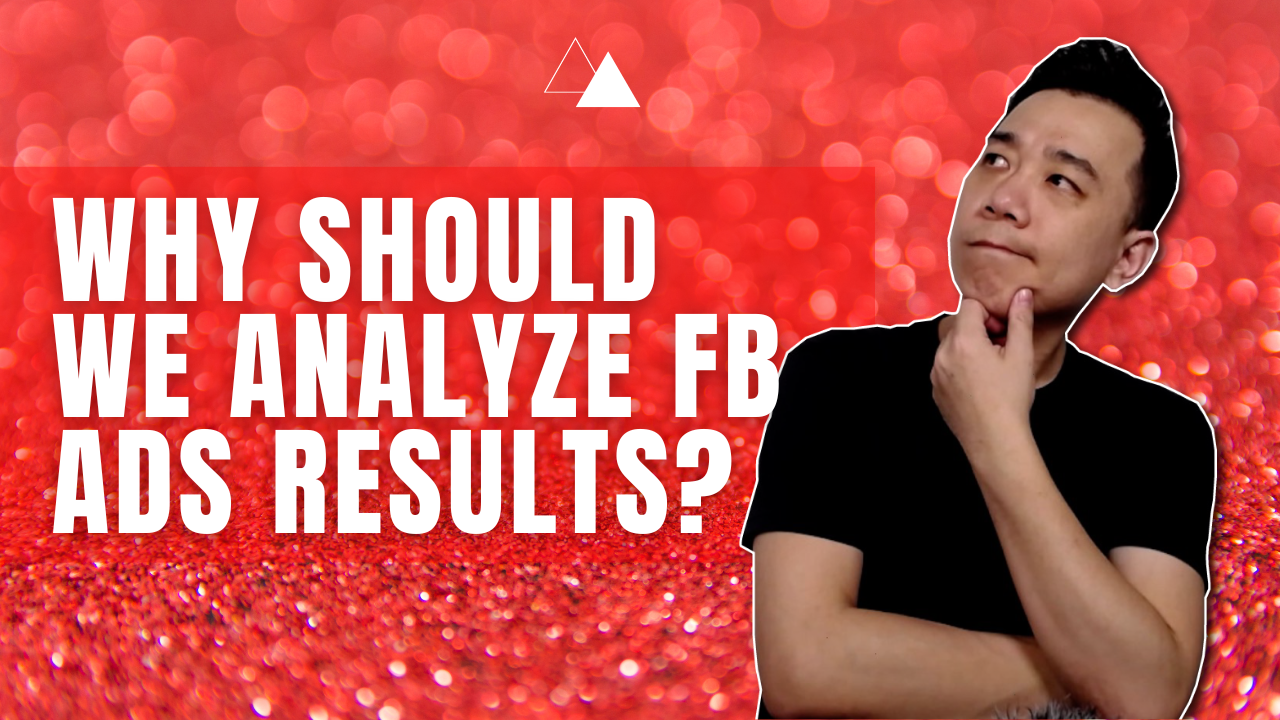
11 Jul Why Should We Analyze Facebook Ads Results?
Starting running Facebook and Instagram ads is the easiest part.
Anyone with a Facebook profile can create a Meta (Facebook) ads account instantly and start spending money on Facebook ads and Instagram ads.
What comes next is the most critical part – How do we know if our Facebook ads or Instagram ads campaign is doing good or otherwise?
That’s why we should learn how to analyze Facebook ads results.
Based on my experience working with over 6,000 Facebook advertisers from over 30 countries since 2010, at least 90% of Facebook advertisers advertise with gut feelings.
Most Facebook advertisers aren’t analyzing the right Facebook ads metrics that matter, and they judge the campaign performance based on their own “feeling”, which is mostly not proven analytically.
For example, when you have a campaign that worked well for 2 weeks. Out of a sudden it stopped working for 3 days, what would you do?
Most Facebook advertisers will pause the campaign, and start thinking about reworking on either the audience targeting settings, or creating a new creative.
Because most Facebook advertisers believe when a campaign “start tanking” or “stop working”, it must be related to the audience targeting or the creative.
But, is that true? No. Let me explain.
First thing first, the campaign actually WORKED WELL for 2 weeks before it started tanking or stopped working, getting you the results you want at the costs you’re comfortable with.
That means the original audience targeting settings and the ad creative and copywriting were ACTUALLY WORKING.
So what went wrong actually?
What actually happened is either the advertising cost increased because of marketing competition, or the user behavior shift. I’ll elaborate further in the coming chapters.
What I wanted to highlight here is, the campaign settings such as audience targeting settings or ad creative and copywriting are usually the last reasons why your Facebook ads campaign stops working.
But if a Facebook advertiser does not know what to examine and eventually pause the campaign as most people would do, they are actually throwing a working Facebook ads campaign away.
That’s the reason why we need to learn Facebook ads analytics.
Whether you have a converting Facebook ads campaign or a tanking one, you need to know WHY.
If we have a converting Facebook ads campaign, we need to know what worked so that we can leverage on the success and make more money from this Facebook ads campaign.
If we have a tanking campaign, we need to find out why so that we can avoid making the same mistake in the future.
So the first reason why we analyze our Facebook ads results is to make informed decisions if our campaign is working or not.
The second reason why we analyze is to find optimization opportunities.
Optimization happens when we have a performing Facebook ads campaign, and we want to do better.
Our current conversion rate is 5% and our Return On Advertising Spend (ROAS) is 5, how can we do better? How can we get more conversions without spending more?
We can find answers to all these questions when we’re able to analyze our Facebook ads results effectively.
It is okay if you have not been analyzing your Facebook ads campaign results effectively, things are going to change.
In this book, I’m going to break down the meaning behind important Facebook ads metrics and how to interpret them correctly.
You’ll learn what to do, how to do it and when to do it right with the help of your own Facebook ads campaign results and metrics.
Alternatively, you can join my free training to learn how to analyze Facebook ads results.
